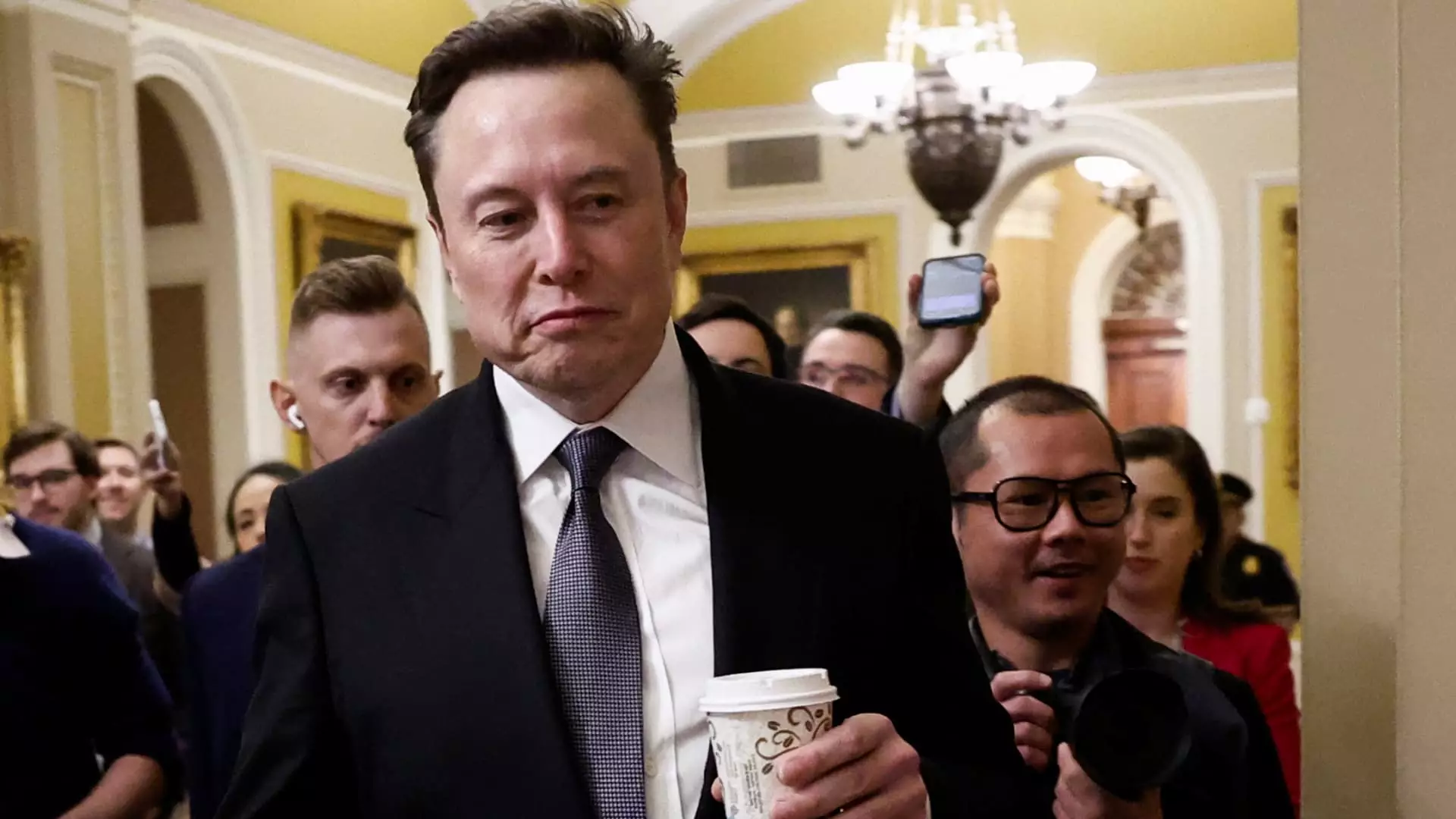In the complex landscape of modern American politics, the intersection of business interests and governmental regulations has never been more pronounced, particularly when discussing influential figures like Elon Musk. Recently, House Democrats, including Jim McGovern of Massachusetts and Rosa DeLauro of Connecticut, have publicly criticized their Republican counterparts for yielding to Musk’s demands, which they claim directly impacted critical bipartisan legislative efforts aimed at regulating U.S. investments in China. This situation raises essential questions about the influence of corporate power on political processes and national security implications.
The backdrop to this controversy was a separate stopgap funding bill passed recently by Congress, which staved off a government shutdown. However, this bill failed to include significant provisions that would regulate cutting-edge technology investments in China. McGovern articulated disappointment over this missed opportunity, asserting that the proposed regulations would have protected American jobs and technological advancements. The sentiment prevailing among Democrats is that Musk’s business interests, particularly concerning Tesla and SpaceX, have significantly swayed Republican legislators, resulting in a legislative compromise that compromises U.S. technological leadership.
Tesla notably operates a factory in China without a local joint venture—an anomaly for foreign automakers. This unique arrangement allows Musk’s company to circumvent typical barriers to entry in that market. Not only does this raise questions about the implications for local economies and job markets in the U.S., but it also brings national security issues to the forefront. If U.S. companies are compelled to prioritize market access over national interests, the ramifications could be profound.
The Business of Political Influence
Musk’s influence and the resulting concessions from Republican legislators demonstrate the blurred lines between business lobbying and governance. Through a series of posts on social media platform X (formerly Twitter), McGovern called out Musk for leveraging his business ventures to shape U.S. policies. Musk’s considerable investments in China have positioned him as an essential player in U.S.-China relations. Critics, such as DeLauro, argue that Musk’s dependence on the Chinese government for operational approval jeopardizes U.S. interests. They have painted a picture of a relationship that could potentially endanger American security by allowing critical technological advances to be exploited by foreign adversaries.
Moreover, Musk’s assertion that the concerns raised by DeLauro were unfounded, calling her an “awful creature,” highlights a broader trend concerning the treatment of political dissent in the era of social media. Musk’s confrontational style and his rise to power projection on digital platforms signal a new kind of political engagement that is less about dialogue and more about spectacle and personality clashes. This suggests a troubling trajectory in which public discourse can be overshadowed by personal attacks and sensationalism.
The role of money in politics cannot be ignored in this discussion. Musk has emerged as a significant financial supporter of Republican initiatives, contributing sizable amounts to political campaigns, particularly to allies of former President Trump. This financial clout places Musk at the nexus of business and political power, raising critical ethical questions about the extent to which private interests can contour public policy.
The ramifications of Musk’s influence extend beyond mere legislative outcomes; they affect how the U.S. interacts with China, especially regarding sensitive topics such as trade, technology, and defense. As Taiwan remains a contentious flashpoint in U.S.-China relations, Musk’s business maneuvers—such as withholding Starlink services—pose dire implications for both national security and democracy in the region.
As lawmakers and citizens alike reflect on these developments, it becomes clear that the relationship between corporate interests and government policy needs careful scrutiny. A delicate balance must be achieved to ensure that American values and national security are not sacrificed at the altar of corporate gain. Moving forward, it is imperative that Congress, under the watchful eyes of engaged citizens, remains vigilant in its responsibility to regulate powerful influencers like Musk. The implications of failing to do so could reverberate across both the political landscape and the global stage for years to come.


Leave a Reply